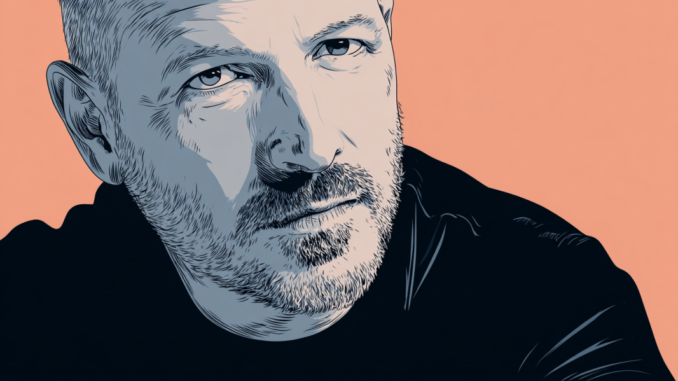
In a packed theater at Fort Mason, after a whirlwind keynote of product announcements, OpenAI CEO Sam Altman sat down with Sir Jony Ive, the legendary designer behind Apple's most iconic products. The conversation, held exclusively for the 1,500 developers in attendance and not part of the public livestream, offered the clearest glimpse yet into the philosophy and ambition behind their secretive collaboration to build a new "family" of AI-powered devices.
The partnership, solidified by OpenAI's staggering $6.5 billion acquisition of Ive's hardware startup Io in May, has been the subject of intense speculation.While concrete product details remained under wraps, the discussion pivoted away from specifications and toward a profound, almost therapeutic mission: to fix our broken relationship with technology.
For nearly 45 minutes, Ive, in his signature thoughtful cadence, articulated a vision that feels like both a continuation of and a repentance for his life's work. The man who designed the iPhone, a device that arguably defined the modern era of personal computing, is now on a quest to cure the very anxieties it helped create.
Jony Ive's post-Apple mission, clarified by ChatGPT
The collaboration, Ive explained, was years in the making, but it was the launch of ChatGPT that provided a sudden, clarifying purpose for his post-Apple design collective, LoveFrom.
"With the launch of ChatGPT, it felt like our purpose for the last six years became clear," Ive said. "We were starting to develop some ideas for an interface based on the capability of the technology these guys were developing… I've never in my career come across anything vaguely like the affordance, like the capability that we're now starting to sense."
This capability, he argued, demands a fundamental rethinking of the devices we use, which he described as "legacy products" from a bygone era. The core motivation, he stressed, is not about corporate agendas but about a sense of duty to humanity.
"The reason we're doing this is we love our species and we want to be useful," Ive said. "We think that humanity deserves much better than humanity generally is given."
An 'obscene understatement': Jony Ive's quest to cure our tech anxiety
The most striking theme of the conversation was Ive's candid critique of the current state of technology — the very ecosystem he was instrumental in building. He described our current dynamic with our devices as deeply flawed, a problem he now sees AI as the solution to, not an extension of.
"I don't think we have an easy relationship with our technology at the moment," Ive began, before adding, "When I said we have an uncomfortable relationship with our technology, I mean, that's the most obscene understatement."
Instead of chasing productivity, the primary goal for this new family of devices is emotional well-being. It's a radical departure from the efficiency-obsessed ethos that dominates Silicon Valley.
When asked about his ambitions for the new devices, Ive prioritized emotional well-being over simple productivity. "I know I should care about productivity, and I do," he said, but his ultimate goal is that the tools "make us happy and fulfilled, and more peaceful and less anxious, and less disconnected."
He framed it as a chance to reject the current, fraught relationship people have with their technology. "We have a chance to… absolutely change the situation that we find ourselves in," he stated. "We don't accept this has to be the norm."
Buried in brilliance: why '15 to 20 compelling ideas' have become Ive's biggest challenge
While the vision is clear, the path is fraught with challenges. Reports have surfaced about technical hurdles and philosophical debates delaying the project. Ive himself gave voice to this struggle, admitting the sheer pace of AI's progress has been overwhelming. The rapid advancement has generated a torrent of possibilities, making the crucial act of focusing incredibly difficult.
"The momentum is so extraordinary… it has led us to generate 15 to 20 really compelling product ideas. And the challenge is trying to focus," Ive confessed."I used to be good at that, and I've lost some confidence, because the choices are, it'll be easy if you really knew there were three good ones… it's just not like that."
This admission provides context to reports that the team is grappling with unresolved issues around the device's "personality" and computing infrastructure. The goal, according to one source, is to create an AI companion that is "accessible but not intrusive," avoiding the pitfalls of a "weird AI girlfriend."
Beyond the screen: Ive's design philosophy for an 'inevitable' AI device
While no devices were shown, the conversation and prior reports offer clues. The project involves a "family of devices," not a single gadget.It will likely be a departure from the screen-centric world we inhabit. Reports suggest a "palm-sized device without a screen" that relies on cameras and microphones to perceive its environment.
Ive argued that it would be "absurd" to assume that today's breathtaking AI technology should be delivered through "products that are decades old." The goal is to create something that feels entirely new, yet completely natural.
"It should seem inevitable. It should seem obvious, as if there wasn't possibly another rational solution to the problem," Ive said, echoing a design philosophy often attributed to his time with Steve Jobs.
He also spoke of bringing a sense of joy and whimsy back to technology, pushing back against a culture he feels has become overly serious.
"In terms of the interfaces we design, if we can't smile honestly, if it's just another deeply serious sort of exclusive thing, I think that would do us all a huge disservice," he remarked.
The chat concluded without a product reveal, leaving the audience with a philosophical blueprint rather than a technical one. The central narrative is clear: Jony Ive, the designer who put a screen in every pocket, is now betting on a screenless future, powered by OpenAI's formidable intelligence, to make us all a little less anxious and a little more human.

